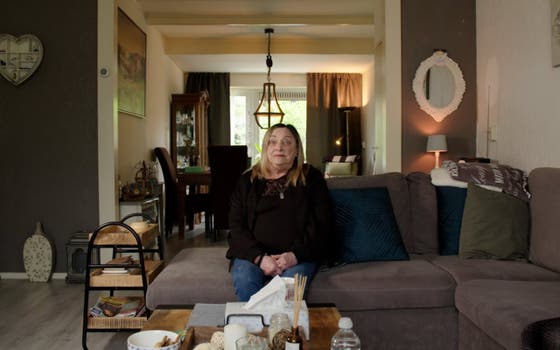Cullen lecture: loose ends in transfer

Transfer from one organization or health care provider to another is a well-known high-risk moment in patients' care journey. How do we prevent loose ends when transferring patients in the care network so that continuity of care is not compromised? That was the subject of the sixth Adrienne Cullen Lecture this week at the UMC Utrecht, with the theme ‘Switching smoothly’: how do we avoid loose ends when transferring patients in the care network’.
It remains poignant: the story of Adrienne Cullen, who died of cervical cancer in 2018 as a result of a medical error at UMC Utrecht. Her call to be open and learn from medical errors marked the start of the annual Adrienne Cullen Lecture at UMC Utrecht. This lecture is named in her honour so that as a hospital we learn from things that go wrong, patients feel better supported, and through openness prevent similar mistakes from being made again.
In recent years, we have increasingly learned the importance of learning not only from mistakes, but especially from patients. How should we deal with mistakes in relation to them? Looking to the future, a major concern is how we manage the transfer properly now that patient care is increasingly taking place in regional networks. How do we prevent patients from falling between the cracks?
Switching smoothly
Despite guidelines on timely and correct information transfer, technological means to support the process and scientific studies into improvement interventions, patient transfer remains a weak link in care. On this subject, Dorien Zwart, Professor of Family Medicine and Practicing Family Physician gave a lecture titled, ‘From weak link to smooth switching’. She called for changing our view of care: patients are not guests in the care system, but we as care providers are guests in the life of the patient. Keeping that in mind can help get the transfer more toward smooth switching.
Watching a look back at Adrienne Cullen lecture
Film: a patient's experience
How this can go wrong is shown in the story of a patient. This patient with multiple disorders undergoes spinal surgery at UMC Utrecht by a neurosurgeon. She is then admitted to a rehabilitation center. There she develops a large bulge in her abdomen. An ultrasound and CT scan show no cause. The neurosurgeon sends the patient back to her primary care physician. The family physician receives no transmission about the bulge and must put in a lot of effort to take over care properly Loose ends in the handover greatly affect the patient's quality of life.
Watch the film: a patient's experience >
Importance of good handover: a panel discussion
Led by Astrid Janssens, professor of Patient and Public Participation, a panel discussion followed on the importance of proper handover in the healthcare network. Issues discussed included who remains in charge of the patient's care when the patient encounters different healthcare providers in the pathway. What can the patient himself do? And to what extent is proper transfer part of the training? Some responses from the discussion:
Romy Vijzelaar, Hospital Medicine trainee: “I only learned the importance of good handover in practice, because there was little attention to this during my Medicine training. Also, I would have liked to have learned more in training about how our healthcare system works."
Richard Bos, patient representative: “While there is a lot of good will, not enough time is made for proper handover, so patients often feel like the last link in the chain.” He advocated for a lead clinician and experiences a lot of value from the patient portal and e-consultations.
Dorien Zwart emphasized that handover moments are a risky moment partly because there are different worlds. The responsibility lies with health care providers but it helps if patients contribute. “I always say, above all don't feel encumbered to raise the alarm if things go differently than they were agreed upon.”
Robert van den Broek, Internist-Elder Medicine, indicated that better and better agreements are being made in the region to arrange the right care in the right place. "But the basis remains to help patients and take responsibility. Self-reflection, clear communication of your own boundaries, and proper follow-up when a patient is transferred to a colleague are very important."
Astrid concludes: what I take away from this lecture is that it is good to realize that there are multiple worlds and that you are tasked with putting yourself in that other world from time to time. That is an exercise in humility that we should practice quite a bit more.
About the Adrienne Cullen Lecture
The Adrienne Cullen lecture on Open Disclosure After Serious Harm is held annually at UMC Utrecht. It was held for the first time in 2018 when Ms Adrienne Cullen and two of her senior physicians spoke openly about the medical error which left her with terminal cervical cancer. Ms Cullen died on December 31, 2018.
